第27章 THE ENIGMA STUDIED(4)
Dr.Butts was the leading medical practitioner,not only of Arrowhead Village,but of all the surrounding region.He was an excellent specimen of the country doctor,self-reliant,self-sacrificing,working a great deal harder for his living than most of those who call themselves the laboring classes,--as if none but those whose hands were hardened by the use of farming or mechanical implements had any work to do.He had that sagacity without which learning is a mere incumbrance,and he had also a fair share of that learning without which sagacity is like a traveller with a good horse,but who cannot read the directions on the guideboards.He was not a man to be taken in by names.He well knew that oftentimes very innocent-sounding words mean very grave disorders;that all,degrees of disease and disorder are frequently confounded under the same term;that "run down"may stand for a fatigue of mind or body from which a week or a month of rest will completely restore the over-worked patient,or an advanced stage of a mortal illness;that "seedy"may signify the morning's state of feeling,after an evening's over-indulgence,which calls for a glass of soda-water and a cup of coffee,or a dangerous malady which will pack off the subject of it,at the shortest notice,to the south of France.He knew too well that what is spoken lightly of as a "nervous disturbance"may imply that the whole machinery of life is in a deranged condition,and that every individual organ would groan aloud if it had any other language than the terrible inarticulate one of pain by which to communicate with the consciousness.
When,therefore,Dr.Butts heard the word antipatia he did not smile,and say to himself that this was an idle whim,a foolish fancy,which the young man had got into his head.Neither was he satisfied to set down everything to the account of insanity,plausible as that supposition might seem.He was prepared to believe in some exceptional,perhaps anomalous,form of exaggerated sensibility,relating to what class of objects he could not at present conjecture,but which was as vital to the subject of it as the insulating arrangement to a piece of electrical machinery.With this feeling he began to look into tho history of antipathies as recorded in all the books and journals on which he could lay his hands.
The holder of the Portfolio asks leave to close it for a brief interval.He wishes to say a few words to his readers,before offering them some verses which have no connection with the narrative now in progress.
If one could have before him a set of photographs taken annually,representing the same person as he or she appeared for thirty or forty or fifty years,it would be interesting to watch the gradual changes of aspect from the age of twenty,or even of thirty or forty,to that of threescore and ten.The face might be an uninteresting one;still,as sharing the inevitable changes wrought by time,it would be worth looking at as it passed through the curve of life,--the vital parabola,which betrays itself in the symbolic changes of the features.An inscription is the same thing,whether we read it on slate-stone,or granite,or marble.To watch the lights and shades,the reliefs and hollows,of a countenance through a lifetime,or a large part of it,by the aid of a continuous series of photographs would not only be curious;it would teach us much more about the laws of physiognomy than we could get from casual and unconnected observations.
The same kind of interest,without any assumption of merit to be found in them,I would claim for a series of annual poems,beginning in middle life and continued to what many of my correspondents are pleased to remind me--as if I required to have the fact brought to my knowledge--is no longer youth.Here is the latest of a series of annual poems read during the last thirty-four years.There seems to have been one interruption,but there may have been other poems not recorded or remembered.This,the latest poem of the series,was listened to by the scanty remnant of what was a large and brilliant circle of classmates and friends when the first of the long series was read before them,then in the flush of ardent manhood:--THE OLD SONG.
The minstrel of the classic lay Of love and wine who sings Still found the fingers run astray That touched the rebel strings.
Of Cadmus he would fair have sung,Of Atreus and his line;But all the jocund echoes rung With songs of love and wine.
Ah,brothers!I would fair have caught Some fresher fancy's gleam;My truant accents find,unsought,The old familiar theme.
Love,Love!but not the sportive child With shaft and twanging bow,Whose random arrows drove us wild Some threescore years ago;Not Eros,with his joyous laugh,The urchin blind and bare,But Love,with spectacles and staff,And scanty,silvered hair.
Our heads with frosted locks are white,Our roofs are thatched with snow,But red,in chilling winter's spite,Our hearts and hearthstones glow.
Our old acquaintance,Time,drops in,And while the running sands Their golden thread unheeded spin,He warms his frozen hands.
Stay,winged hours,too swift,too sweet,And waft this message o'er To all we miss,from all we meet On life's fast-crumbling shore:
Say that to old affection true We hug the narrowing chain That binds our hearts,--alas,how few The links that yet remain!
The fatal touch awaits them all That turns the rocks to dust;>From year to year they break and fall,They break,but never rust.
Say if one note of happier strain This worn-out harp afford,--One throb that trembles,not in vain,Their memory lent its chord.
Say that when Fancy closed her wings And Passion quenched his fire,Love,Love,still echoed from the strings As from Anacreon's lyre!
January 8,1885.